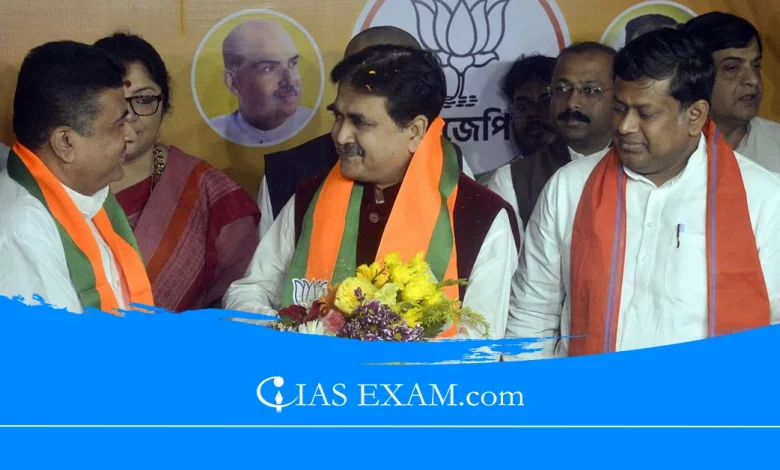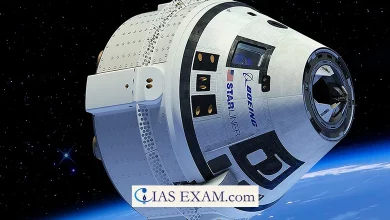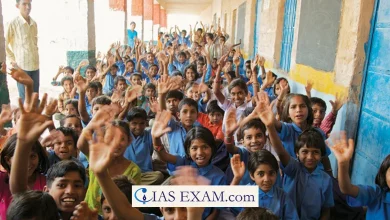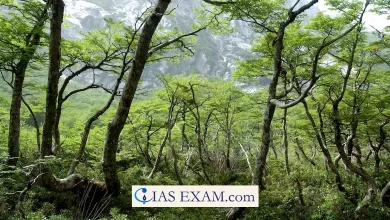Daily Current Affairs for UPSC
Restriction on judges and bureaucrats joining politics
Syllabus - Polity [GS Paper-2]

Context
Recently a Calcutta High Court judge and a senior IPS officer in West Bengal resigned from their posts and joined political parties. This has brought up concerns about whether it’s right for constitutional government and government officials to join political parties after they leave their jobs.
Existing Constitutional restrictions
- Rationale – principle of checks and balance
-
-
- The Constitution works on the principle of checks and balances between various organs. The executive is accountable to the legislature.
- An unbiased judiciary keeps a look at each of these branches of the State.
- There also are different impartial bodies like the Election Commission, Public Service Commission, CAG who’re required to carry out their constitutional responsibilities with non interference from the government.
- The independence of those establishments is ensured through ensuring constant tenure, monetary independence, stringent removal procedure and restrictions after demitting office.
-
- Existing constitutional restrictions
-
- A judge of a Supreme Court after ceasing to hold office cannot appear as a legal professional before any court or authority in India.
- A judge of a High Court has similar restrictions except for appearance before the Supreme Court or different High Courts.
- The CAG and the chairman/individuals of the Public Service Commission can’t take in any other employment with Central or State governments after demitting office.
- These restrictions are laid down to avoid favouritism,during the period of holding such positions, closer to the government in power with a rationale of securing any submit-retirement benefit.
Restrictions on gaining political posts
- No such restrictions
-
-
- There are no restrictions in terms of joining political events, contesting elections or being nominated to certain posts.
- There are first rate instances of men and women who held independent constitutional posts and later went on to join politics or have been nominated to various posts.
-
- Examples
-
- There had been Supreme Court judges in 1967 and 1983, who resigned from their posts to contest the presidential and parliamentary elections from Assam, respectively.
- Another Supreme Court judge joined a political party in Tamil Nadu and contested elections 5 years after his retirement in 1999.
- A former Chief Election Commissioner was a Rajya Sabha member and Minister in 2004, three years after his retirement.
- Recently, a retired Chief Justice of India was nominated to the Rajya Sabha in 2020 within four months of his retirement.
- There have additionally been activities where retired CAG and judges were appointed as Governors of States.
- Numerous bureaucrats have also joined political events and contested elections after resigning from service or soon after their retirement.
Various recommendations and cooling off period
- The Election Commission (EC) had in 2012 encouraged the Union government to provide for a cooling-off period for central bureaucrats after their retirement before they may be a part of political parties and contest elections.
- However, the Government had rejected this recommendation primarily based on the opinion of the Attorney General that this will not be in step with constitutional provisions and democratic values.
- The Supreme Court had brushed off a writ petition in May 2022 that sought a path from the top court to the legislature to border a regulation implementing a cooling-off period for retired bureaucrats before becoming a member of politics.
Arguments against the colling off period
- One of the crucial functions of a democracy is each citizen’s right to contest elections.
- The Attorney General whilst offering his opinion towards the 2012 recommendation of EC had stated that maintenance of independence and neutrality could be applicable at some point of the period a person is in service.
- There are guidelines at present which restrict a senior bureaucrat from joining a non-public process for as a minimum one year after he or she retires from government service.
- Such restriction for commercial employment is based totally on intelligible differentia to avoid conflicts of hobby.
- However, such a restriction in opposition to officers contesting polls won’t be a valid category and would not be in concord with democratic concepts in the Constitution.
Conclusion
- Justice should not only be carried out but ought to also be visible to be achieved.
- This applies similarly to judges, unbiased constitutional authorities and senior bureaucrats.
- Extending this precept even after they demit office can have a salutary impact.
- This may be executed by prescribing a cooling-off period for becoming a member of political parties or being nominated to political posts by the government.
Source: The Hindu
UPSC Mains Practice Question
Q.Discuss the issues with Judges and Bureaucrats Joining Politics. What are the existing Constitutional restrictions? (250 words)





.png)



